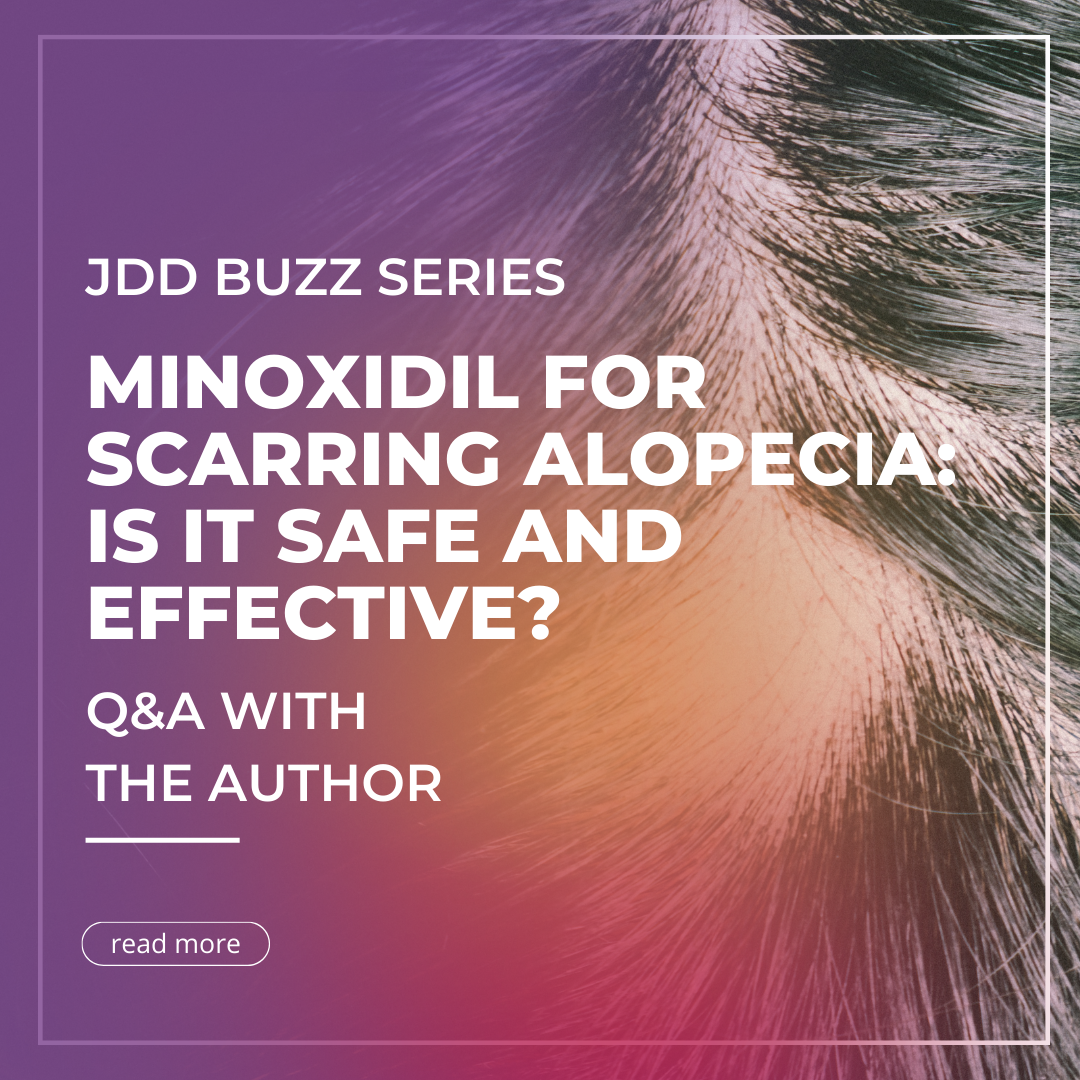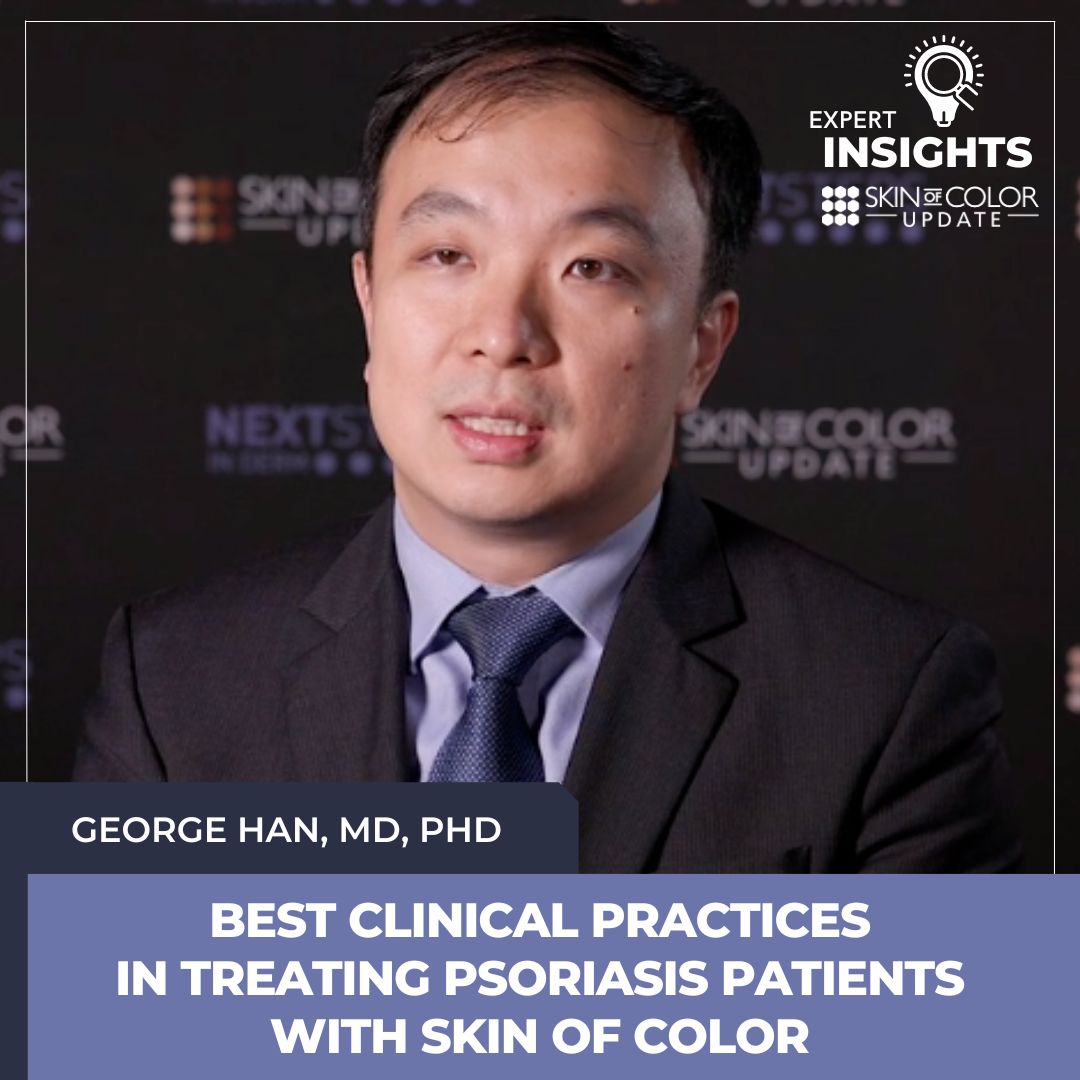Navigating the Complexities of Alopecia: Insights from Dr. Adam Friedman
 Dr. Adam Friedman's lecture at 2024 ODAC conference provided invaluable insights into the nuanced approach required when dealing with patients presenting with alopecia. Addressing the diverse array of alopecia types and their myriad presentations, Dr. Friedman emphasized the significance of a comprehensive clinical history and evaluation to formulate an effective treatment plan. By employing a cas …
Dr. Adam Friedman's lecture at 2024 ODAC conference provided invaluable insights into the nuanced approach required when dealing with patients presenting with alopecia. Addressing the diverse array of alopecia types and their myriad presentations, Dr. Friedman emphasized the significance of a comprehensive clinical history and evaluation to formulate an effective treatment plan. By employing a cas …
 Dr. Adam Friedman's lecture at 2024 ODAC conference provided invaluable insights into the nuanced approach required when dealing with patients presenting with alopecia. Addressing the diverse array of alopecia types and their myriad presentations, Dr. Friedman emphasized the significance of a comprehensive clinical history and evaluation to formulate an effective treatment plan. By employing a cas …
Dr. Adam Friedman's lecture at 2024 ODAC conference provided invaluable insights into the nuanced approach required when dealing with patients presenting with alopecia. Addressing the diverse array of alopecia types and their myriad presentations, Dr. Friedman emphasized the significance of a comprehensive clinical history and evaluation to formulate an effective treatment plan. By employing a cas … Continue reading "Navigating the Complexities of Alopecia: Insights from Dr. Adam Friedman"


 The latest buzz word in hidradenitis suppurativa treatment is combination. Without a single, consistently and widely effective therapy, it’s important to build your own regimen by combining treatments, says Dr. Steven Daveluy, associate professor of dermatology and residency program director at Wayne State University School of Medicine. Next Steps in Derm, in partnership with ODAC Dermatology, A …
The latest buzz word in hidradenitis suppurativa treatment is combination. Without a single, consistently and widely effective therapy, it’s important to build your own regimen by combining treatments, says Dr. Steven Daveluy, associate professor of dermatology and residency program director at Wayne State University School of Medicine. Next Steps in Derm, in partnership with ODAC Dermatology, A …  Topical minoxidil and, more recently, low-dose oral minoxidil are often used to treat hair disorders. But are these treatments safe and effective for scarring alopecia? A scoping review published in the March issue of the Journal of Drugs in Dermatology sought to determine what research says about the use of these treatments for central centrifugal cicatricial alopecia, frontal fibrosing alopecia, …
Topical minoxidil and, more recently, low-dose oral minoxidil are often used to treat hair disorders. But are these treatments safe and effective for scarring alopecia? A scoping review published in the March issue of the Journal of Drugs in Dermatology sought to determine what research says about the use of these treatments for central centrifugal cicatricial alopecia, frontal fibrosing alopecia, …  It’s an exciting time for new therapies in atopic dermatitis with several therapies recently approved or in late-stage development. Next Steps in Derm, in partnership with ODAC Dermatology, Aesthetic & Surgical Conference, interviewed Baltimore dermatologist Dr. Shawn Kwatra, who outlined the new treatment options. From therapies that target IL-13 and IL-31 to JAK inhibitors, dermatology cl …
It’s an exciting time for new therapies in atopic dermatitis with several therapies recently approved or in late-stage development. Next Steps in Derm, in partnership with ODAC Dermatology, Aesthetic & Surgical Conference, interviewed Baltimore dermatologist Dr. Shawn Kwatra, who outlined the new treatment options. From therapies that target IL-13 and IL-31 to JAK inhibitors, dermatology cl …  Next Steps in Derm, in partnership with Skin of Color Update, interviewed Dr. George Han, associate professor of dermatology at the Donald and Barbara Zucker School of Medicine at Hofstra/Northwell. There’s a lot of nuance in diagnosing psoriasis in darker skin tones, according to Dr. Han. Learn three components to consider, and why you might want to introduce systemic therapies earlier in this …
Next Steps in Derm, in partnership with Skin of Color Update, interviewed Dr. George Han, associate professor of dermatology at the Donald and Barbara Zucker School of Medicine at Hofstra/Northwell. There’s a lot of nuance in diagnosing psoriasis in darker skin tones, according to Dr. Han. Learn three components to consider, and why you might want to introduce systemic therapies earlier in this …